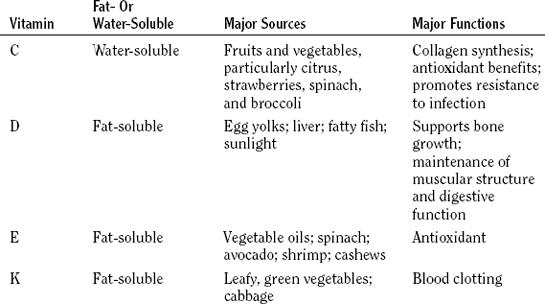A vitamin is an organic, nonprotein substance that is required by an organism for normal metabolic function but cannot be synthesized by that organism. In other words, vitamins are crucial molecules that must be acquired from outside sources. While most vitamins are present in food, vitamin D, for example, is produced as a precursor in our skin and converted to the active form by sunlight. Minerals, such as calcium and iron, are inorganic substances that also enhance cell metabolism. Vitamins may be fat- or water-soluble.

